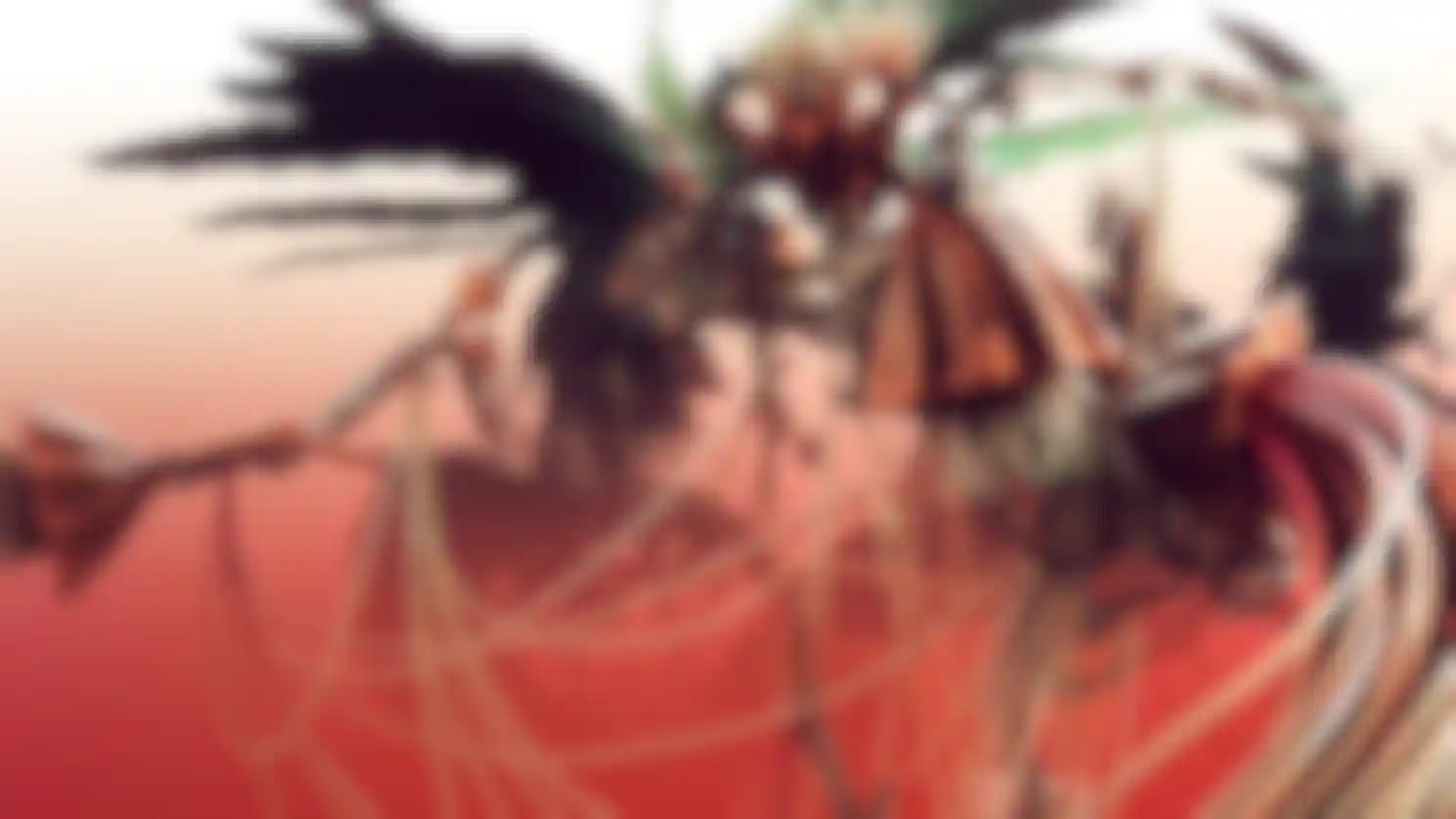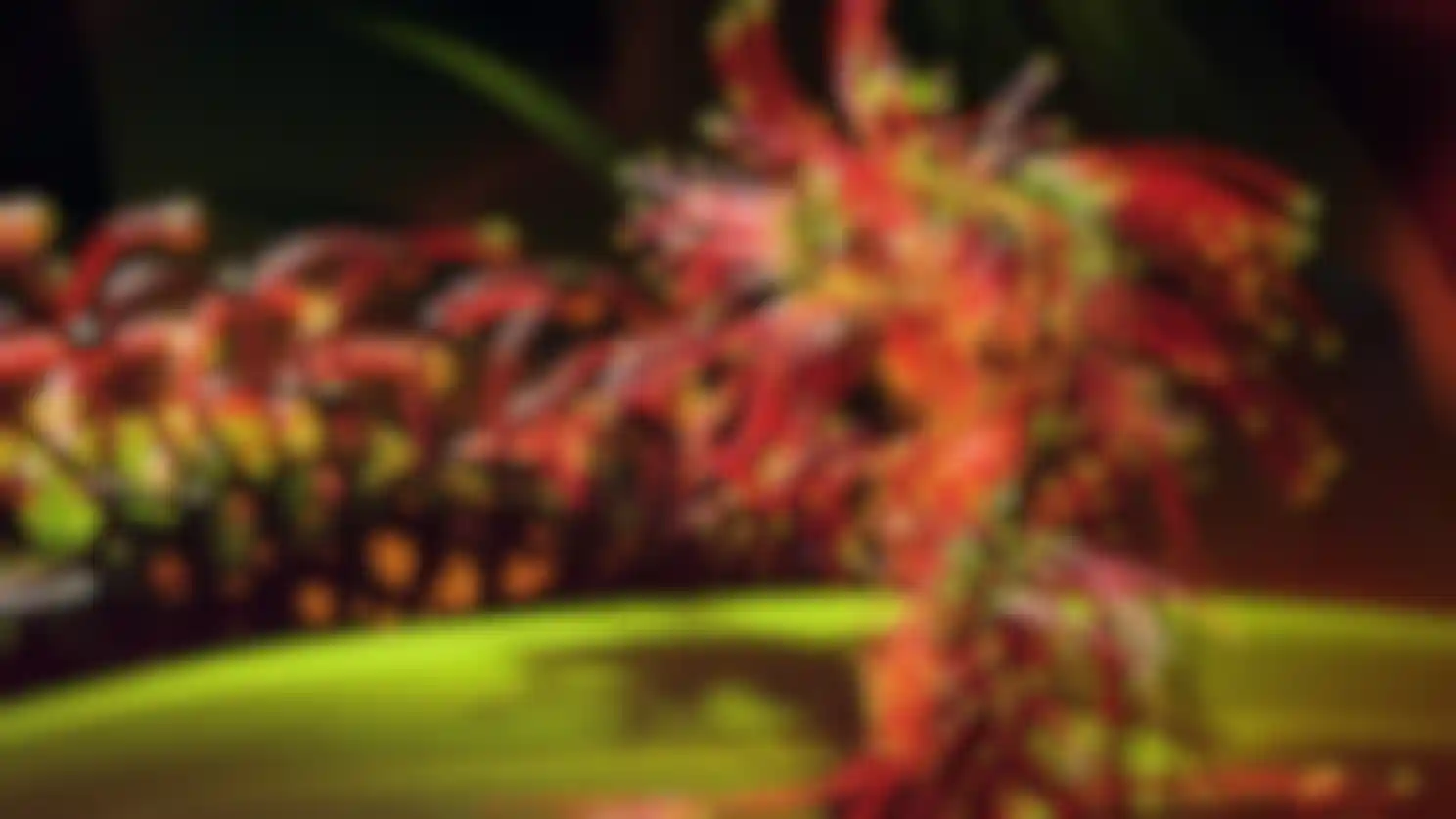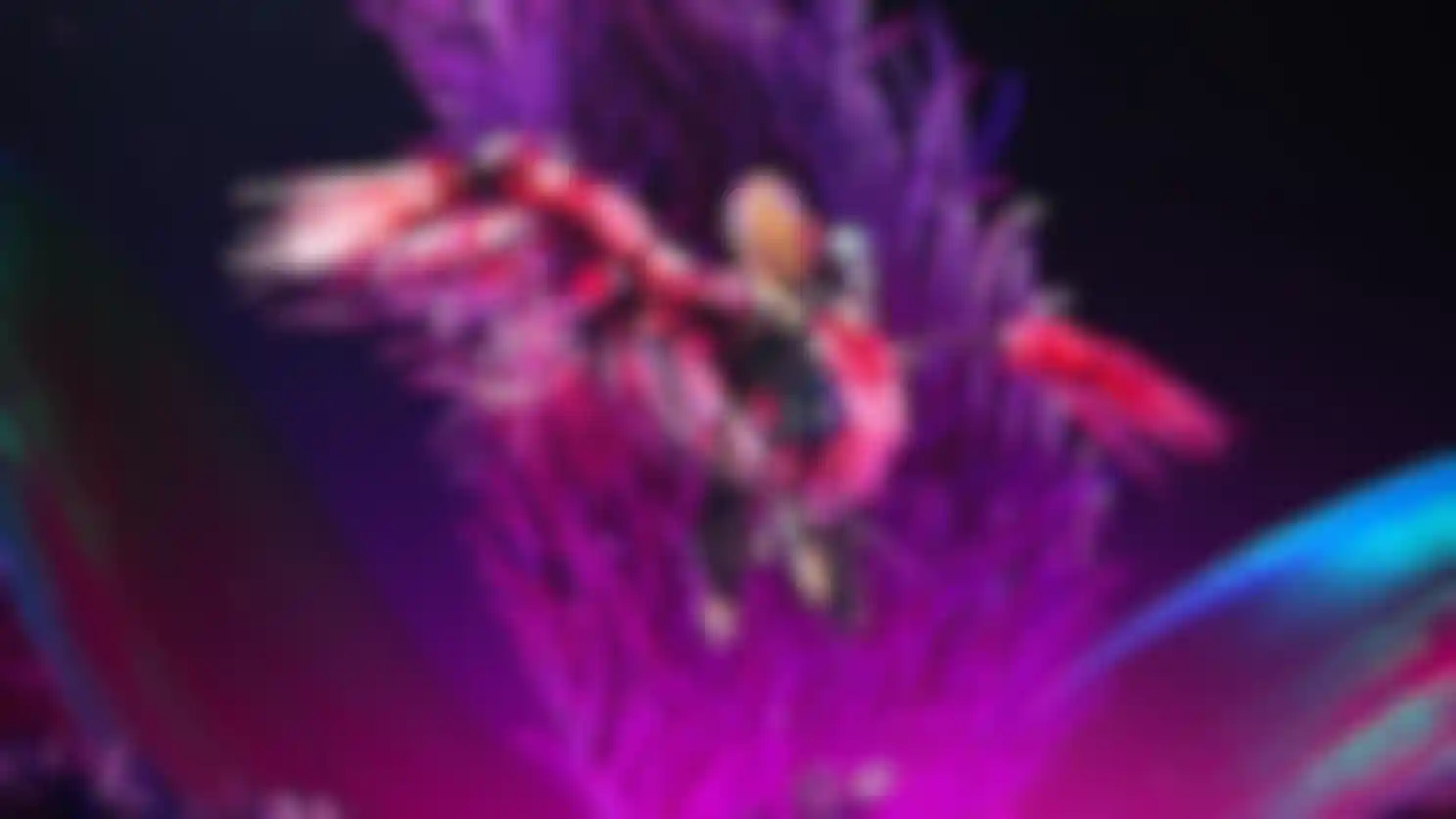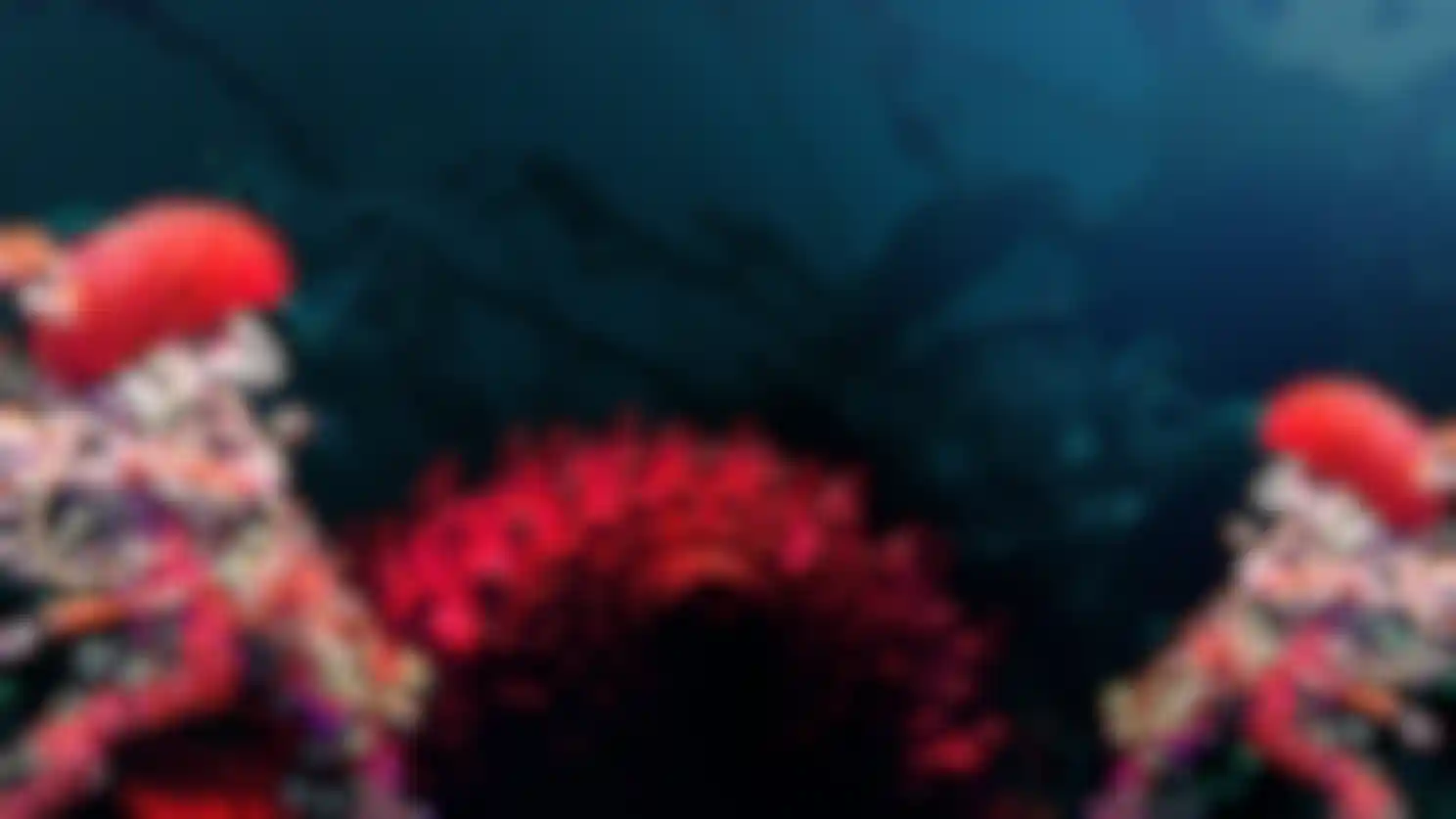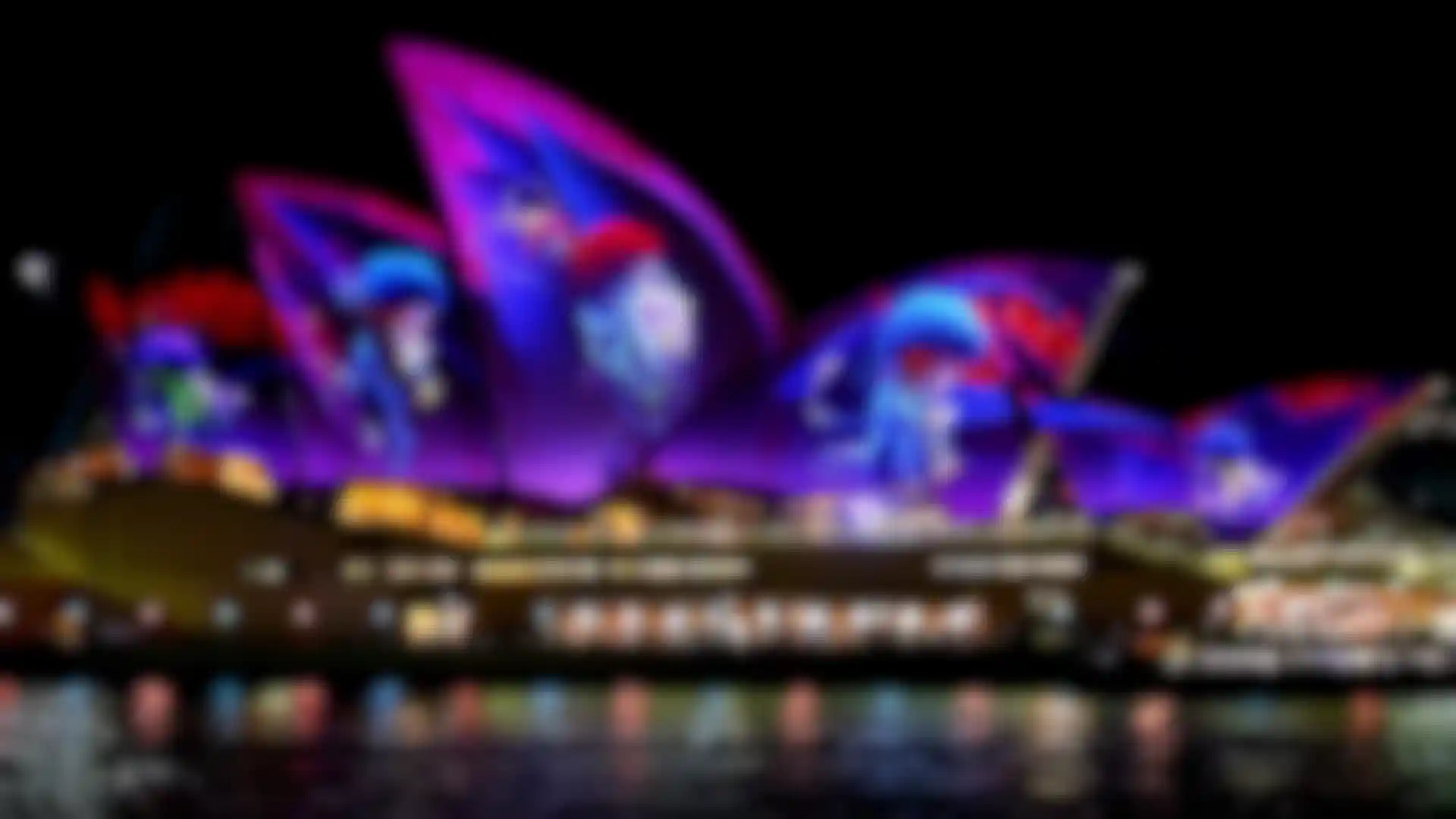
BEMO Projection Mapping at Vivid Festival Cinema 4D Character Animation Illuminates Iconic Sydney Opera House at Annual "Lighting the Sails".
Since 2013, Los Angeles-based BEMO, has earned a reputation as a talent-rich creative studio known for artistic ingenuity and technical problem solving for design-driven animation, visual effects and immersive projects. Cinema 4D has long been a part of BEMO’s production pipeline serving as its central 3D production hub. Recently, the facility lent its distinctive stamp to the popular “Dream Corp LLC” TV series, JLR/Bond Museum Install and the sensational “This is America” music video by Hiro Murai.
Now, under the supervision of design and technical director, Brandon Parvini, and executive producer Brandon Hirzel, the BEMO creative team spent a rigorous three months delivering 12-minutes of mesmerizing, grand-scale projection mapping content for the annual “Lighting of the Sails” at the Vivid Festival in Sydney Australia, taking place May 24 – June 15, 2019.
In collaboration with director and visionary artist, Andrew Thomas Huang, known for his music video work with FKA twigs, Björk, Sigur Rós and Thom Yorke, the motion designs will be projected each evening on continuous loop throughout the celebration of light, music and creativity to illuminate the exterior of the iconic Sydney Opera House Sails. BEMO is also working in collaboration with Australian based creative collective, Collider, the Vivid Festival Group, Sydney Opera House, and City of Sydney.
Dancing Digital Sculptures
Parvini explains the animation team was asked to study human bodies in motion and integrate them with a floral theme for a piece Huang named “Austral Flora Ballet -- with Soundscape by Kelsey Lu”, “…a lush and visceral projected artwork of dancing digital sculptures inspired by Australia’s native flora.”
“Huang provided us with a variety of flowers native to Australia that were the inspiration for the piece. We worked with him to select five that would provide a nice variety of animated textures, colors and fluid movements to pull from. These would be blended with contemporary dance and motion capture technology for eventual projection onto the sails of the Sydney Opera House.”
Rich Cinema 4D Toolset Used Exclusively to Handle Character Design
BEMO began to establish the foundation of the character design using Cinema 4D as the exclusive software throughout production to handle all of the animation and simulation. “It was important to be able to recognize the dancer for an identifiable frame of reference otherwise it would very easily look too abstract and viewers wouldn't understand the intentionality of the movement,” Parvini adds.
“The rich feature set in Cinema 4D Release 20 allowed us to freely experiment and achieve a nontraditional procedural approach to building characters that were extremely durable, stable and relatively light. Although a 12-minute piece of content requires heavy lifting, we stayed very nimble in the process pivoting and iterating quickly to strike the right balance for each character in the piece”.
At Rogue studio in Los Angeles, Bemo supervised a full motion capture session in front of projected images of the Sydney Opera House while capturing the movements of dancer Genna Moroni and choreography by Toogie Barcelo. Once the actual FBX files were obtained from the mocap session, BEMO had an animated female form that matched the rough proportions of the dancer and set off to develop the set of characters. “It was the craziest set of rigs I have ever built,” Parvini explains. “Typically, you have a base of a human form that has a simple skeleton inside of it. The Vivid rigs were almost entirely dynamic and procedural.” Interestingly, BEMO designed the visual rhythms of the dance motion and the pacing dynamics without having so much as an audio click track to work from.
Fluid Animated Composites Rendered in Cinema 4D and Redshift
With a robust pipeline, BEMO generated nearly 30,000 frames of 4K footage over several active systems using Cinema 4D on both Redshift and Octane renders running for weeks to create aesthetically pleasing and fluid animated composites. During the Lighting of the Sails, the video content will be displayed from a central Disguise d3 server and projected on six laser projectors from different locations to ensure proper illumination and coverage on the Sydney Opera House sails.
Tapping into the hair dynamics, constraints and rigging tools in the MoGraph toolset in Cinema 4D, the BEMO team sampled the elements from the source flowers such as stems, twigs and petals, and ‘broke apart” all of the motion capture to create roughly five three-anda- half-to-four-minute dance sequences. Each was designed to accentuate the character and different personalities represented by the Australian flora.
“Some animation scene elements were attached to the physical skin of the character or were attached to the bones system,” says Parvini. “For example, we would use X-Particles to help create a root serving as a leg or flowers as torsos with different arms coming off of that, grab the underlaying splines and mesh and bake it. Or using the deformers in Cinema 4D we could project our generated forms to the rigged mesh or attach it via a tracer system referencing the original bone structure.”
Alembic System in Cinema 4D R20 Ensures Character Stability
BEMO also took advantage of the new Alembic system workflow in Cinema 4D, debuted in Release 20. This allowed for baking sequences into the rigging system to ensure the stability of each character and avoid having to re-simulate elements. “The Alembic files are an extraordinarily important to our workflow as they can handle splines, hair, particles, color, vertex maps, and more,” Parvini added.
Working from a 3D model of the actual Sydney Opera House, BEMO used the layover and foreground modes in Cinema 4D to mask and coordinate elements that represented the sails in order to calibrate a camera lens that could be used to match the shape of the sails from the perspective of the projectors. “Essentially, you have to render the wide shots from a vantage point similar to where the images will be projected on the screen,” explains Parvini. “Our experience at the start of the creation process knowing images would be projected outdoors with limited low level ambient light available helped inform our creative decisions to introduce bright and colorful elements and avoid mid-to-grey tones.”
“Cinema 4D is brilliant because you can find a myriad of ways to do the same thing and often times I felt that I had to go through multiple iterations to find the right solution, says Parvini. “Vivid was one of the most challenging of my career demanding that I build on previous creative experiences to firmly grasp fundamentals and build on them like stories on a house. This is definitely one I have stacked up a few new floors.”
BEMO Credits:
Director: Andrew Thomas Huang
Producer: Olivia Hantken
Design and Animation: BEMO
Executive Producer: Brandon Hirzel
Design/Technical Director: Brandon Parvini
3D Modeler: Patrick Goski
3D Artist: Kenneth Robin
Compositing: William Mendoza
Post Supervisor: Dennis Shin
Music Score: Kelsey Lu
Dancer: Genna Moroni
Choreographer: Genna Moroni
Motion Capture: Rouge MoCap
